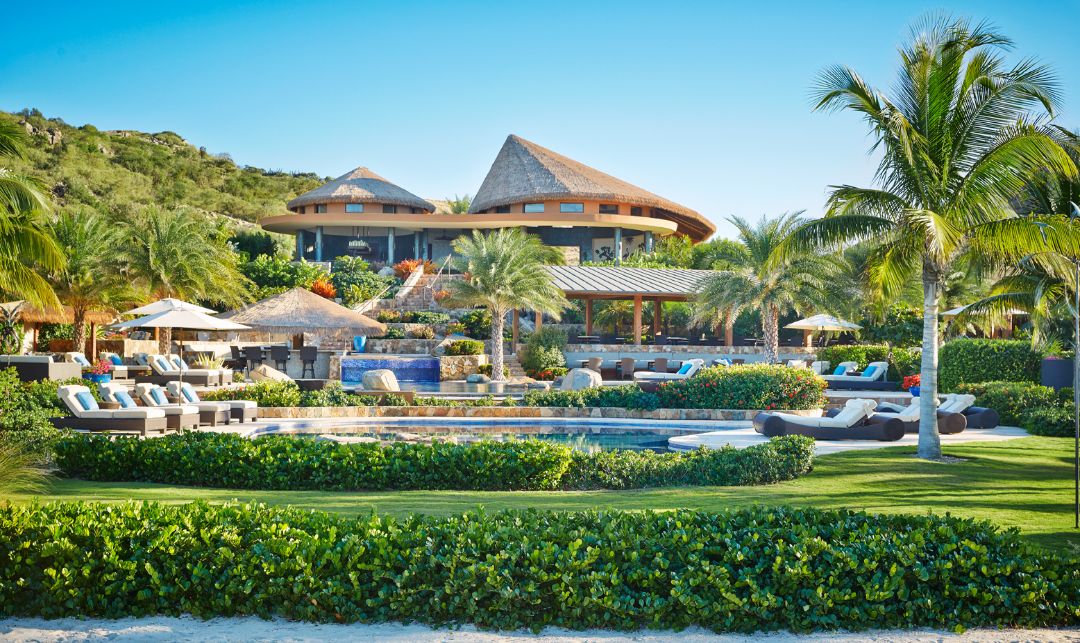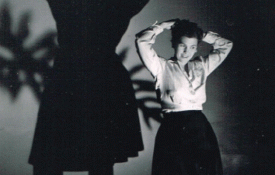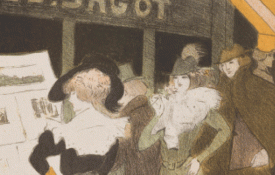An entrepreneur beginning with his first lawn-mowing job as a 12-year-old, David V. Johnson and a few friends were buying underperforming gas stations and making them profitable by the time he was in college at Michigan State.
After graduation, legendary developer Howard Keating hired him, and just two years later Johnson became president of Keating Brokerage, selling real estate in Detroit’s tony suburbs of Birmingham and Bloomfield Hills. In 1974, Johnson started his own real estate brokerage, and in 1975 his new company, Abbey Homes, was the largest luxury homebuilder in the Midwest. “My goal was to build 10% of the high-end custom homes in the United States,” he says. He was on the fast track to the top.
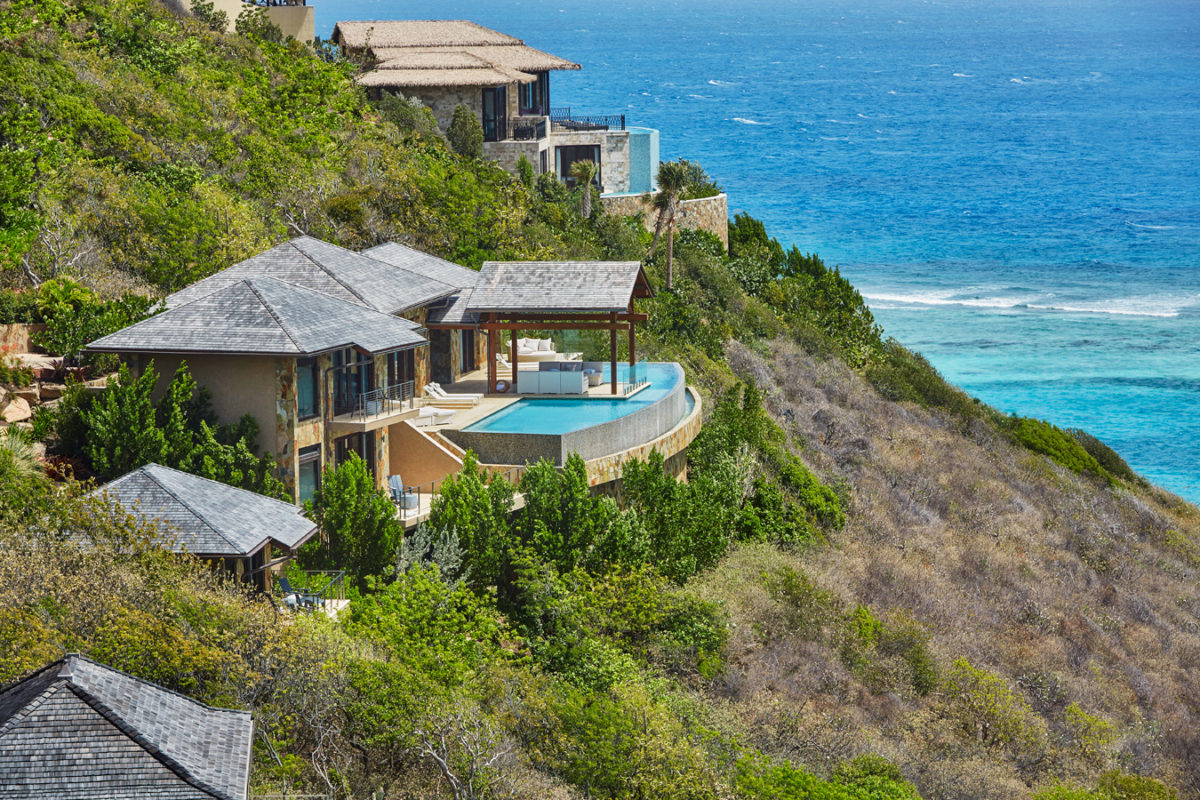
Hilltop home for sale at Oil Nut Bay.
Then, in 1978, he broke his neck.
The doctors who screwed bolts into his head told him he was a quadriplegic. Johnson disagreed: “I’m going skiing in Aspen.” He proved his doctors wrong and today walks with only a slight limp.
But that injury changed his life. He sold Abbey Homes, became a passionate equestrian (“My horses were my legs,” he says), and at a fundraiser met his future wife, Pamela, who is equally passionate about all things equine. “I learned to be grateful,” he says. “I learned that every day is the best day of your life.”
Being an entrepreneur and having already developed 20 properties, he began looking for a new enterprise, but this time he was on a quest to find a property that spoke to his heart. In 1994, he began developing Bay Harbor, 800 homes on 1,000 acres, on the property of an abandoned cement plant along the Lake Michigan shoreline, the largest reclamation project in the U.S. at the time. Even so, his quest continued.
“I wanted to find the most beautiful land and to create an amazing development in harmony with nature, a development that would literally change people’s lives,” he says. The search spanned six years and 13 countries.

Dining at the development’s adjacent marina village.
He found an idyllic spot in 2008, now called Oil Nut Bay, on the eastern tip of Virgin Gorda in the North Sound region of the British Virgin Islands. There, the ocean surf crashes against the cliffs on one side, answered by the gentle lapping of the turquoise waters of the sheltered bay on the other. Johnson’s company, Victor International Corporation, bought 400 acres, put half of them into a conservation easement, planned 117 homesites in eight distinct neighborhoods, and installed discreet solar panels and smart water-management systems (including gray water for irrigation). “I was green before green was cool,” Johnson says.
Oil Nut Bay is green but also chic with amenities including every imaginable water sport, spa and wellness services, and an overwater restaurant. It is totally private—accessible only by boat or helicopter—with homesites starting at $2.95M and the property’s most spectacular home on the market for $39.5M. The marina has slips for superyachts up to 100 meters.
In the spirit of gratitude, the Johnsons created the North Sound Foundation to support local cultural, environmental, heath, and educational services.
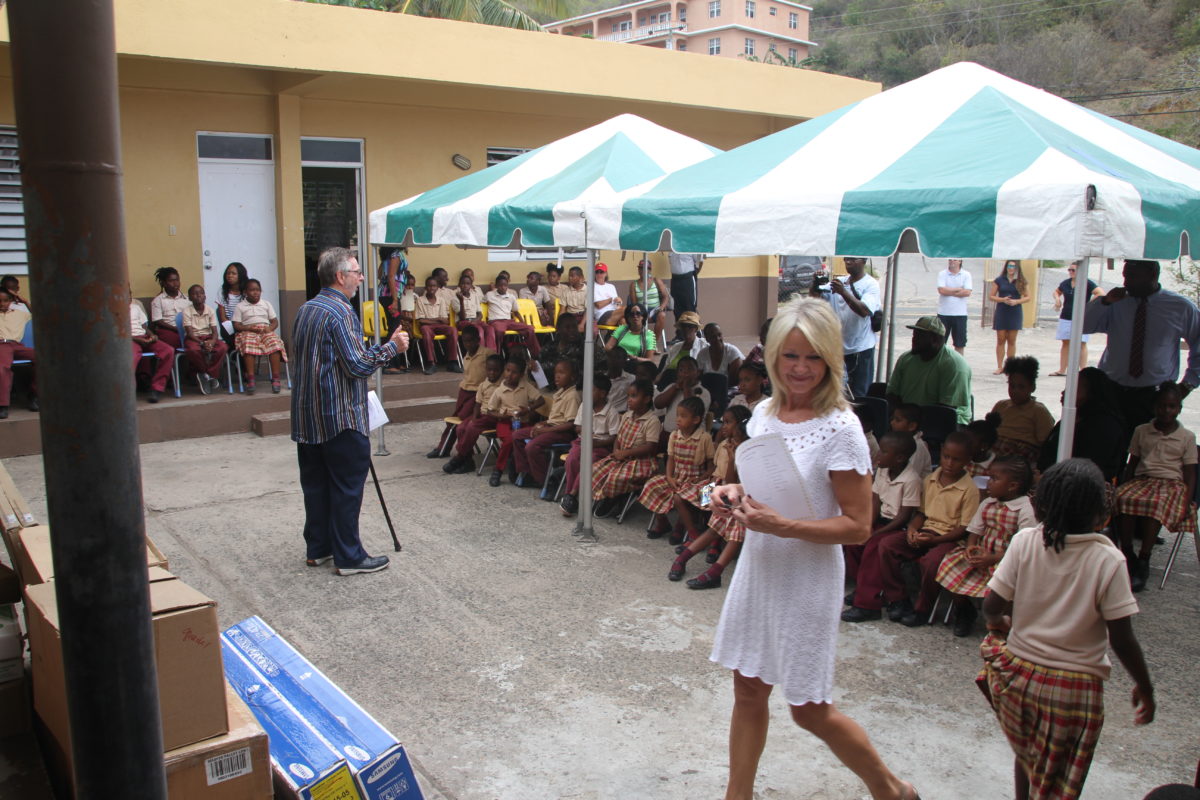
David Johnson giving back to the local community in the British Virgin Islands.
The foundation has adopted Robinson O’Neal Primary School in the North Sound, spearheading its rebuilding after heavy damage from Hurricane Irma, making it stronger, smarter, and greener, and supplying it with the latest educational technology.
Since the start of the COVID-19 pandemic, the North Sound Foundation has raised more than $700,000 and provided meals to vulnerable people in the community through a soup kitchen; supported local schools with computers, headphones, and updated playground equipment; provided food vouchers to people in the community who have been laid off; and hosted youth summer programming and swimming instruction.
Students also enjoy visiting Oil Nut Bay’s barn, where Pamela oversees the rescue and rehabilitation of animals—including horses and other furry, feathered, and four-footed creatures. “They help us teach kindness,” she says.
Oil Nut Bay, one of the biggest employers in the British Virgin Islands, has kept 75% of its team employed during the resort’s closure due to the pandemic. “Responsibility and loyalty are a two-way street,” Johnson says.






































